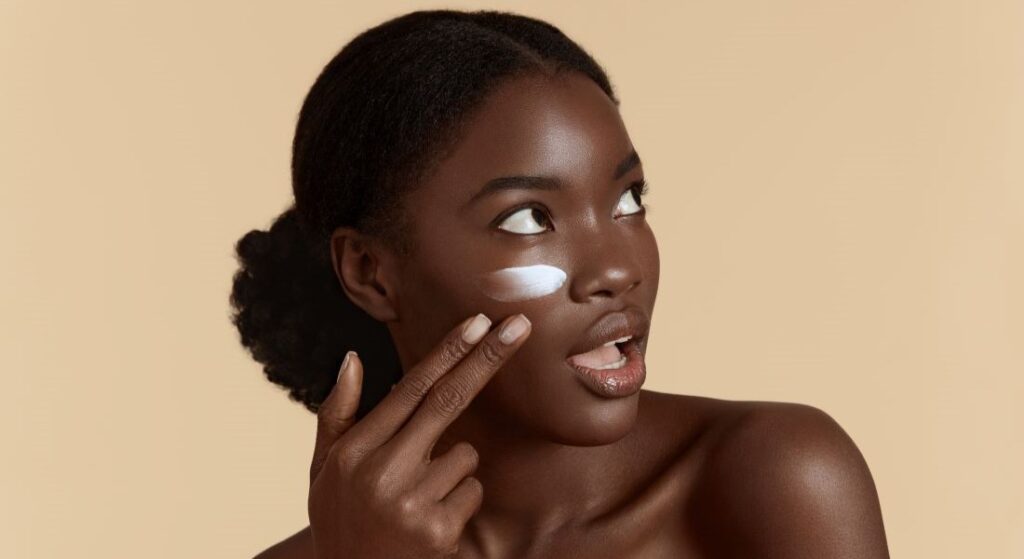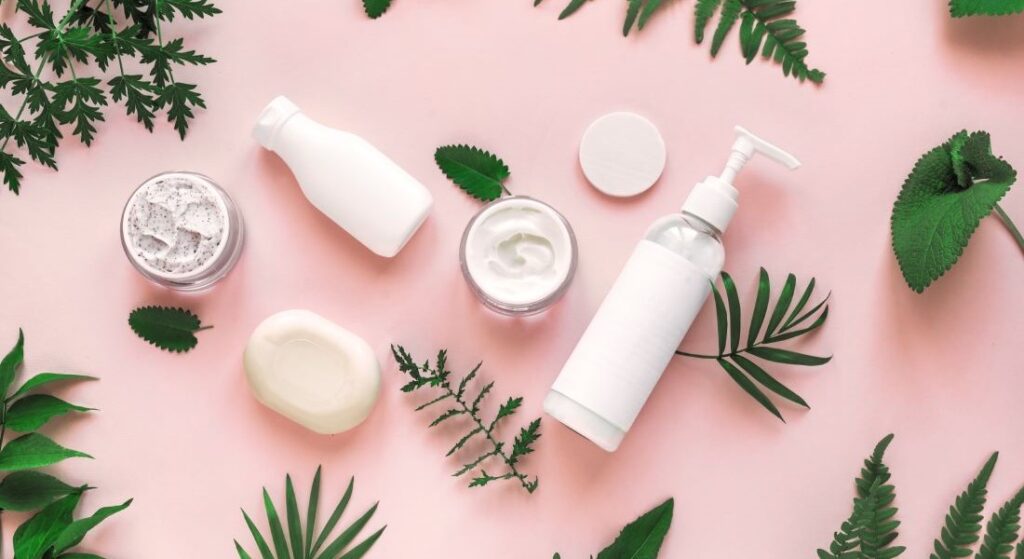This website uses cookies so that we can provide you with the best user experience possible. Cookie information is stored in your browser and performs functions such as recognising you when you return to our website and helping our team to understand which sections of the website you find most interesting and useful.
Step beyond the buzzwords to discover beauty that is more than skin deep
By Becki Murray | 24 July 2023 | Lifestyle
The ‘Skintellectual’ movement is celebrated for democratising beauty, but are we truly better educated about skincare?

It’s no understatement to say that the skincare industry is rapidly evolving, and that’s due in no small part to the empowerment of beauty customers.
Indeed, backed by the power of digital discourse, it might seem like the modern shopper has all the skincare information they need at their fingertips. With a quick web search, there are skincare recommendations for every skin type and goal imaginable, and seemingly ever greater choices as new brands launch with growing regularity.
Skincare discussions on social media, for example – where Instagram and TikTok videos achieve millions of views – has even driven the rise of a new type of customer: the ‘skintellectual’.
These skincare aficionados have even helped democratise the industry, by placing the sharing of information in customers’ hands. No wonder then, according to Brandessence Market Research, that by 2026 the skincare industry is projected to generate an impressive $180bn.
Yet, while the beauty industry’s tradition of ‘top secret’ formulas and ‘miracle solutions’ is ending, key questions remain: Why do individuals still struggle to find products that work for them? Why does confusion continue? And to what degree are we replacing limited information with inaccurate information?
BEYOND THE BUZZWORD
‘Clean’, ‘natural’, ‘medical-grade’… the skincare market is still dominated by buzzwords and, while they may appear to make product categorisation easier, in practice they mean very little. While the day-to-day customer shouldn’t need a science degree to understand their skincare routine, there’s a growing distance between the complexity of cosmetic science and beauty’s one-word darlings.
That’s especially true of those listed above because they lack legislation and have definitions that are consistently ill-defined.
Even so, the digitalisation of beauty is fuelling their use, powered by search engines that require you to use the right keywordto effectively search for products online. This only rewards the use of reductive language to ensure brands get noticed; even if this oversimplifies and misinforms.

HOW FEAR ENDURES
Segregating skincare into ill-fitting boxes also creates false conflicts between different beauty ideologies, so, while information has become more freely available, skincare dialogue has also become dichotomised.
Consider synthetic ingredients, which have been demonised by their direct comparison to ‘skin and planet-loving’ naturals, despite lab-based ingredients powering new innovations and advancing sustainability goals. After all, while natural beauty requires large acres of farmland to grow, synthetics can be engineered without picking a single flower. That’s a conversation worthy of much greater celebration.
Clean beauty is another key example. For something to be ‘clean’, there’s the assumption that something else is dirty, or, worse, unsafe. Hence, the boycotting of skincare ingredients as ‘toxic’, or the marketing of ‘no nasties’ lists from ‘chemical-free’ brands.
Fundamentally, all ingredients are chemicals, so the term ‘chemical-free’ should have been quickly discarded as fearmongering. Yet, it still prevails. The reason, if you pardon the pun, is frighteningly simple: fear is one of our strongest emotions, meaning a ‘better safe than sorry’ approach can feel comfortable, even if it’s inaccurate.
Moreover, considering it’s legally required for skincare products to be thoroughly tested before they are sold, the enduring suspicion that brands are putting profits first [swindling or even harming customers] only draws attention away from finding tangible skincare solutions.
THE SCIENCE OF SIMPLIFICATION
Even the biggest hero ingredient to emerge from the ‘skintellectual’ movement has not been spared from oversimplification. ‘Retinol’ is now one of the most searched-for skincare terms, powered by discussions around its wrinkle-smoothing abilities. Yet, ‘retinol’ itself is a buzzword term.
‘Retinoids’ is the more accurate categorisation for the group of vitamin A derivatives used in skincare, with different forms ranging from prescription-only retinoic acid, down to more stable yet less potent retinol esters. These forms can differ widely in effectiveness and side effects, but discussions remain around ‘retinol’ as a catch-all term – without acknowledging the nuance.
‘Retinol’ hype also overlooks one important fact concerning skincare scientific research: studies on ‘gold-standard’ ingredients are predominately conducted on the individual element, without any context of how the specific form, percentage, and interaction with other components within a product affects results. It therefore requires more than knowing ‘retinol’ is good for wrinkles to truly understand what products may help you achieve your goals.

THE SOLUTION
It’s clear that even with fast-paced development in the skincare industry, greater access to information has not necessarily led to better-informed customers. Luckily, the first step toward a solution is that simple acknowledgment. By taking time away from the constant feed of information we receive online, we can refocus on the quality not quantity of the skincare ‘education’ we have access to. Simply put, try to remember the three ‘Rs’: research, respect, and real transparency.
The best research to look for is final formulation clinical trials, conducted on a range of individuals in the appropriate age range and skin type. Another ‘R’ – the recency of studies – is also significant as research is constantly evolving. There’s even more creditability if the research is independent, to limit bias.
Significantly, brands should want to highlight this data, so don’t be afraid to ask for it and, in fact, a good rule of thumb is to ask a research-based question to any skincare brand you are considering. Is it open and well-balanced, or vague and illusive? True empowerment is knowing the brands you spend with treat you with respect.
Certification can also help cut through the noise of the skincare industry’s own hype, especially in the ‘organic’ and sustainability space where greenwashing can abound. (After all, ‘organic’ is another unlegislated term). Look for the logos of organisations such as Soil Association, BCorp and Leaping Bunny on accredited products, for independent, evidence-based analysis of a brand’s sustainability credentials.
Bear in mind, though, that research and accreditation also generate costs, which are often passed down to customers. It’s important to challenge brands to be transparent about this aspect of skincare marketing, while avoiding the temptation of placing value above efficacy. Particularly, while the rising popularity of ‘dupes’ – cheaper alternatives to popular products – can seem exciting, don’t be blinded by similar packaging, where often the core formula bears little resemblance.
Consequently, with the skincare customer, quite rightly, demanding more for their money, it’s time to step away from the buzzwords and create a more open skincare dialogue. By avoiding polarisation, and taking a balanced point of view, we can all make better-informed decisions.







